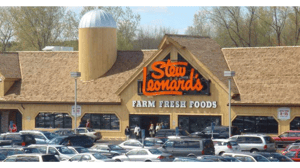Future profits tied to leadership
January 1, 2018
Some time ago I did research on what successful marketing strategies had in common and what was lacking in those that were not successful. I share the results in my new book, Winning Marketing Strategy: The Rules, which I wrote with my colleague Rich George. I didn’t expect to find that one factor—leadership—dominated everything else. Virtually every example of a successful strategy had evidence of strong leadership. Leadership gets a lot of press, but what does it mean?
Leadership is the process of taking people to places that they might not go alone. It is creating an environment where employees will feel compelled—even honored—to go with you even though there are risks and dangers. But most of all, leadership is not a position in the company; it is a state of mind. Many of today’s CEOs, who typically have backgrounds in finance and accounting, often view the role of leadership as making profits in the short term while ignoring the future.
Today more than ever we need leadership in the food retail industry. We can no longer believe that the motto of success is location, location, location. Today and in the future food retail leaders must be able to completely understand exactly what consumers want and figure out a way to give it to them. More importantly, today’s leaders must recognize that food retailers can no longer have stores to satisfy everyone.
What will distinguish the grocery stores of the future? I think we all know how to place orders, manage categories, merchandise and display products. Stores will be distinguished by leaders— the people who demand that the food retailers of the future move into the new millennium serving increasingly demanding consumers.
In the future, there will not be a lot of food retailers serving the average American consumer because there is no average consumer. Retailers that are stuck in the middle will disappear and companies run by innovative leaders will grow.
Our industry is not without leadership. We have seen leaders take their business into new areas. John Mackey took Whole Foods from a Hippie-style store based on natural and organic products and made it into a national chain. The Albrecht brothers from Germany brought a concept to the U.S. where they sold only about 800 to 1,000 items and all unknown brands. Heresy! And of course there is Sam Walton.
As an industry, we must proactively develop and prepare the next generation of food retailers to strap on the yoke of leadership.
What can the industry do to foster leadership?
1. We need to have a better approach to consumer insights and where the consumer is heading. Do you realize how little most supermarkets have changed. We have changed the assortments, but that is because suppliers are sending different items. How are stores really making shopping easier for the new generation? What does the new generation of shoppers want? You can see some new formats such as Tesco’s Fresh and Easy, The Fresh Market or Wal-Mart’s Marketside stores. How many are familiar with Famima? It is a Japanese food store, much like a convenience store, that primarily targets women by offering much more than food. They might not all be winners, but they all took the lead.
2. We need to look around at the international marketplace more than ever. The rest of the world is facing the same problems and issues that we are and they are discovering innovative solutions. The irony is that while we created the concept of the supermarket, now the rest of the world is coming into our market and in some cases doing a better job than our hometown business.
3. We can also do a better job of educating—not just training—our future leaders. We need to make sure that our future leaders know more than just “net present value.” Saint Joseph’s University offers a master’s degree in food marketing. Everyone in the class is a food industry executive with at least five years experience in the food industry. We stress leadership and preparing them for the future. Our business school has the highest level of accreditation any school can have, yet we have a ratio of four manufacturers to one retailer in the program. Retailers don’t invest in education.
This is the first of a series of articles in which our faculty will share our department’s approach to advancing leadership in food retailing. We look forward to your feedback. Write to me at [email protected] [email protected].
Dr. John L. Stanton is chairman and professor of Food Marketing at Philadelphia-based Saint Joseph’s University.
About the Author
You May Also Like




